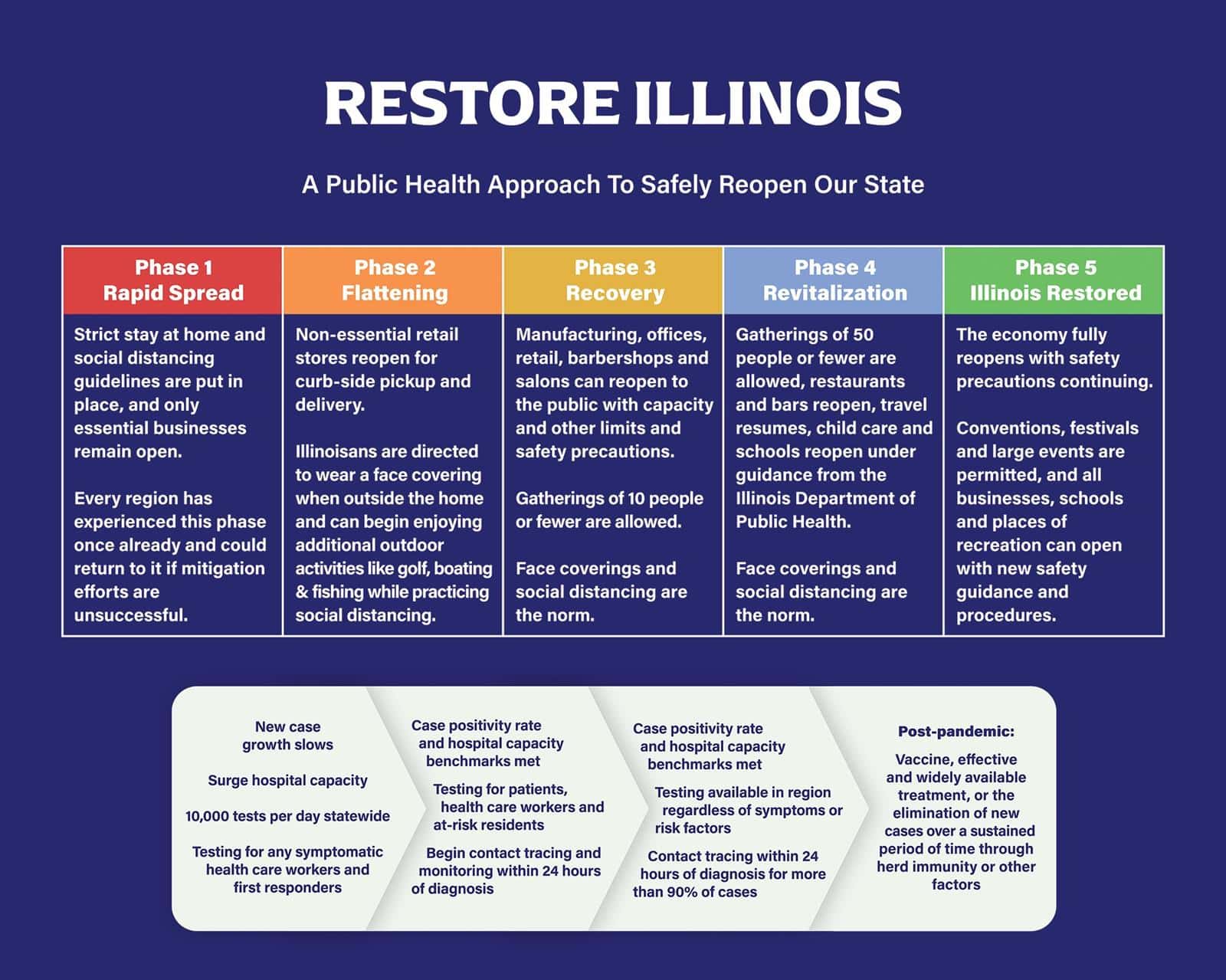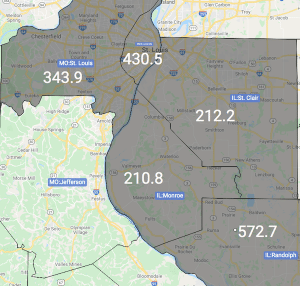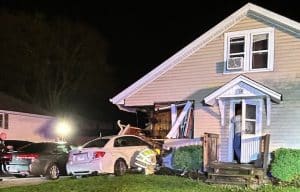Coronavirus case at Waterloo Burger King; regional reopening plan unveiled

Monroe County is up to 83 confirmed cases of coronavirus as of Tuesday, one of which is an employee at Burger King in Waterloo.
The fast food restaurant, located at 800 N. Market Street, remained closed for cleaning as of Monday. Attempts to reach Burger King management after news of the positive test late last week have not yet been successful.
“We believe that the risk of transmission to the public is low at this time, as the employees were using appropriate personal protective equipment during drive-thru operations and food preparation,” the Monroe County Health Department posted on Facebook regarding the Burger King case. “Our department is closely monitoring this situation, and the facility and staff have been very cooperative.”
As local residents continue to wear masks, meet virtually and remain socially distant due to COVID-19, Gov. JB Pritzker on Tuesday announced the initial framework Illinois will use as it begins to return to some semblance of normalcy.
Prtizker’s five-phase plan, titled “Restore Illinois: A Public Health Approach To Safely Reopen Our State,” takes a regional approach by dividing Illinois into four regions: northeast, north-central, central and southern.
That last region is every county south of Bond.
“We have to figure out how to live with COVID-19 until it can be vanquished – and to do so in a way that best supports our residents’ health and our health care systems and saves the most lives,” Pritzker said before noting he got input from members of both political parties on the plan. “Restore Illinois is a public health plan to safely reintroduce the parts of our lives that have been put on hold in our fight against COVID-19.”
Illinois has already been through the first phase described in the plan, which is termed “rapid spread,” from mid-March until late April.
It is now in the second phase, titled “flattening,” as of May 1 when Pritzker’s latest stay at home order with modified restrictions took effect.
To move to the next phase, several criteria monitored by the Illinois Department of Public Health must be met.
A region must have a test positive rate at or under 20 percent that is increasing by no more than percentage 10 points over 14 days, no overall increase in hospital admissions for coronavirus-like illnesses for 28 days and surge capacity of at least 14 percent of ICU beds, medical and surgical beds and ventilators.
It must also be able to test all patients, health care workers, first responders, people with underlying health conditions and individuals in living facilities and begin contact tracing and monitoring within 24 hours of diagnosis.
A region could also move back a phase if data shows there is a sustained rise in positivity rate or hospital admissions for COVID-19-like illnesses, reduction in hospital capacity or significant outbreak.
The earliest a region could move to phase 3, called “recovery,” is May 29.
The recovery phase allows for manufacturing, offices, retail, barbershops and salons to reopen with capacity and other limits and safety precautions, permits gatherings of 10 or fewer people and requires face covering and social distancing to be the norm.
It also permits limited child care and summer programs and non-essential businesses to have employees return to work with safety precautions – though working remotely is still encouraged.
To move to the fourth phase of “revitalization,” the same criteria previously listed must be met with the addition of testing being available regardless of symptoms or risk factors and contact tracing and monitoring beginning within 24 hours of diagnosis for more than 90 percent of cases in a region.
Phase 4 allows gatherings of 50 or fewer people, restaurants and bars to reopen with capacity limits and safety guidelines, travel to resume, child care and schools to reopen under guidance from the Illinois Department of Public Health and entertainment options like movie theaters to reopen with limitations.
Face coverings and social distancing are still the norm in this phase.
The fifth phase, called “Illinois Restored,” would be post-pandemic and can only be moved to if several factors are satisfied. Life would completely return to normal in this phase.
“I know that we all have a passionate desire to return to the sense of normalcy that we felt before the world knew of COVID-19,” Pritzker said. “Here’s the truth, and I don’t like it any more than you: Until we have a vaccine or an effective treatment or enough widespread immunity that new cases fail to materialize, the option of returning to normalcy doesn’t exist.”
Visit coronavirus.illinois.gov to read the entire plan, which may be updated as more research and data become available.

of confirmed cases of coronavirus per 100,000 people
in St. Louis, Monroe, Randolph and St. Clair counties
and St. Louis City. The data is from USAFacts.org,
which the Centers for Disease Control and Prevention
is using to help update its numbers.
Virus totals
Out of Monroe County’s 83 confirmed cases as of Tuesday, 11 residents have died from complications associated with COVID-19, according to Monroe County Health Department Administrator John Wagner. There have been 9 new cases over the past week.
The latest death was another resident of Garden Place Senior Living at 480 DD Road in Columbia, bringing the total Monroe County deaths associated with the facility to 10.
As for cases, 30 are associated with Garden Place in this county. Twenty-three residents and four employees of that facility who live in the county have tested positive for coronavirus.
Oak Hill Senior Living and Rehabilitation Center at 623 Hamacher Street in Waterloo also reported its second and third confirmed cases of the coronavirus, one of whom is a part-time dietary worker who had “limited contact” with residents.
The other person is a staff member who has been on leave since the beginning of April but did not report positive until later that month.
The first case was a member of Oak Hill’s housekeeping staff who tested positive for the virus April 23.
Another taxpayer-funded facility that has been affected by the virus is the Monroe County Jail.
Wagner confirmed at Monday’s Monroe County Board meeting there were multiple cases of the virus at the jail. Monroe County Sheriff Neal Rohlfing later added to that confirmation.
“We have had a few limited cases of COVID-19 in the jail which were both inmates and corrections officers,” Rohlfing said. “Most of the individuals that have tested positive have been asymptomatic and were not affected very much.”
Rohlfing also said the jail has taken precautions for its inmates and corrections officers, like wearing masks, checking inmate temperatures twice a day and quarantining anyone who experiences symptoms.
Countywide, 33 people have recovered from the virus and are released from quarantine in Monroe County.
Health officials have placed those who have had contacts with a known positive under quarantine, including Waterloo Mayor Tom Smith.
According to the Illinois Department of Public Health, there are 37 confirmed cases of the virus in the Columbia zip code (110 tests performed), 38 in the Waterloo zip code (161 tests performed) and seven in the Valmeyer zip code (16 tests performed).
On Friday, the Monroe County Health Department posted on Facebook that following the guidance of Pritzker, IDPH and the phased re-opening of Illinois, it would like to remind all subdivisions and apartment complex owners/managers that “no unnecessary communal gatherings are permitted.” That includes all communal pools, workout/gym areas and community rooms/lounges that are to remain closed as per the governor’s executive order.
In nearby St. Clair County, there are 771 confirmed cases, including 63 coronavirus-related deaths. A total of 3,694 people have been tested in that county.
To the south, Randolph County now has 227 confirmed cases, 79 of which are active. Three people have died from the virus, 145 have recovered from it and six are hospitalized with it in that county.
Many of the Randolph County cases can be traced to food manufacturer Gilster Mary-Lee, which has plants and offices in Chester and Steeleville.
Statewide, there are 83,021 cases of coronavirus and 3,601 deaths, according to the Illinois Department of Public Health.
The IDPH announced 4,014 more cases and 144 more deaths on Tuesday. There were 1,266 new cases and new cases and 54 new deaths on Monday. 1,656 additional cases and 57 additional deaths on Sunday. 2,325 new cases and 111 new deaths on Saturday. There were 2,887 additional cases and 130 additional deaths on Friday. There were 2,641 more cases and 138 more deaths on Thursday. There were 2,270 new cases and 136 new deaths on Wednesday.
The rise in cases comes with an increase in the amount of tests performed in Illinois, as the state is conducting over 13,000 tests a day now.
There are 968 ICU beds and 3,410 ventilators available in Illinois, according to the IDPH, including 37 ICU beds and 154 ventilators in this region.
In Missouri, there were 10,006 confirmed cases and 524 deaths as of Tuesday. That includes 3,868 cases in St. Louis County and 1,476 cases in St. Louis City, according to the Missouri Department of Health & Senior Services.
Nationally, more than 1,363,839 people had contracted the virus as of Tuesday afternoon, while 81,507 people have died from it.
The pandemic has now spread to at least 177 countries, with over 4.1 million cases and at least 288,348 deaths worldwide.






